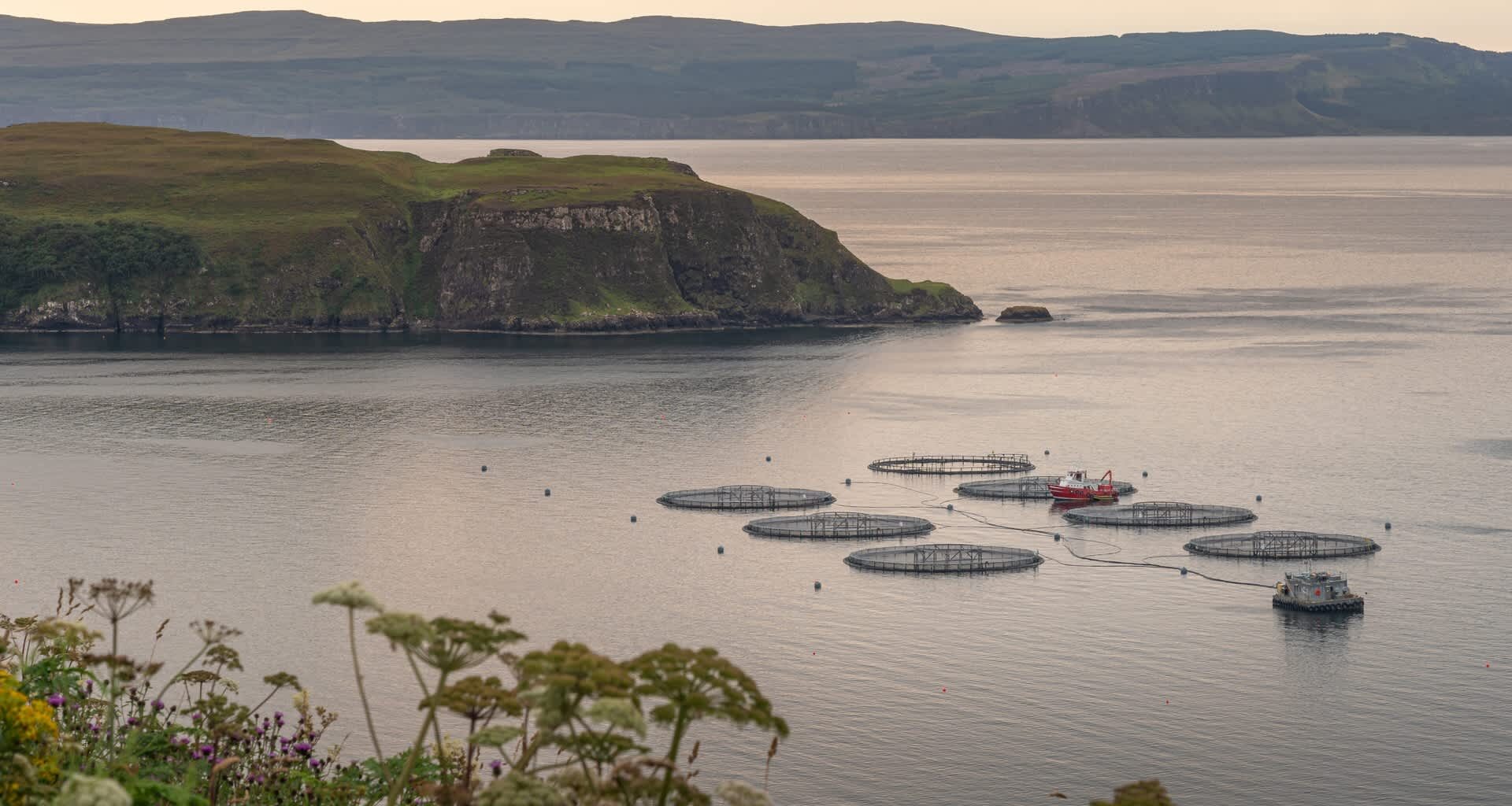The devastating impact of Storm Amy is still being felt as scientists have warned of yet another consequence this massive cyclone caused. Phys.org reported that farmed salmon escaped into open water during the storm, which has severe implications for the surrounding ecosystem.
What’s happening?
As the storm surge from Storm Amy ravaged the Scottish Highlands, it also broke through farm pens holding thousands of salmon. Due to the storm, nearly 75,000 farmed salmon escaped into the wild in Loch Linnhe.
Since farmed salmon are highly bred, they exhibit distinct genetic differences from wild salmon. Farmed salmon are also not equipped to survive in the wild, as they feed on pellets rather than catching live prey.
However, scientists are more concerned about the farmed salmon that do survive in the wild. These farmed fish can breed with wild salmon, disrupting the genetic pool in the wild population.
“When they breed with wild salmon, their offspring inherit a mix of traits—neither truly wild nor farmed—leaving them less suited to their natural environment,” wrote Phys.org. “This process, known as ‘genetic introgression,’ gradually damages the genetic integrity of wild populations.”
Why is the release of farmed salmon important?
The release of farmed salmon is especially concerning because wild salmon are listed as endangered in Great Britain. Mixing farmed salmon with wild salmon not only threatens the wild salmon population but also disrupts the species’ genetic pool.
Mitsubishi Electric’s efficient heating and cooling HVAC solutions can help you stay comfortable no matter the weather or region. You can even regulate temperatures in each room with individually controlled all-electric heat pump systems.
With an energy-efficient, all-climate system from Mitsubishi, you can reduce the amount of energy needed to heat and cool your home, receive up to $2,000 in tax credits, and get peace of mind knowing you’re choosing rigorously tested, high-quality products.
What’s worse, this time of year is when wild salmon are making their way back to Scottish rivers to spawn, a time when female salmon lay eggs that are eventually fertilized by male salmon. Integrating farmed salmon during this crucial point in the salmon population’s life cycle increases the risk of interbreeding and “long-term genetic damage,” according to Phys.org.
Prior to Storm Amy, a 2021 Marine Scotland report had already found that rivers located near fish farms were in “very poor condition” and showed “evidence of major genetic changes.”
What’s being done about the escape of farmed salmon?
The escape of farmed salmon doesn’t just serve as a direct threat to the wild salmon population. It also underscores the reality of extreme weather events, as storms are becoming more powerful due to rising global temperatures.
Phys.org emphasized the need for “tighter regulation, better containment measures, and effective genetic monitoring of wild populations” to better protect wild salmon and prevent future escapes caused by storms.
Join our free newsletter for good news and useful tips, and don’t miss this cool list of easy ways to help yourself while helping the planet.


